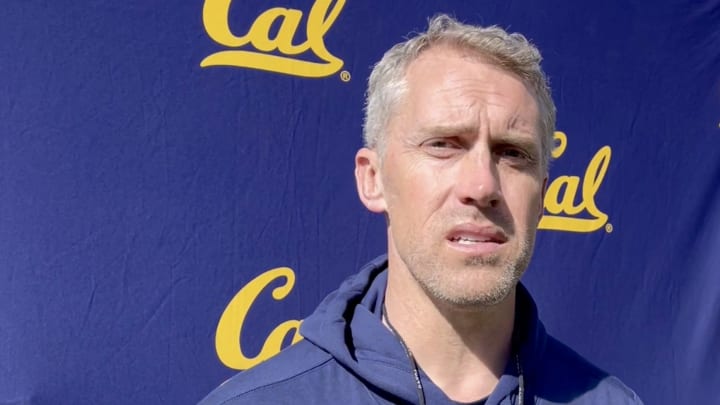Cal Football: Once-Proud Bears Defense Looking to Cure Last Year's Woes

Almost no football team in the Pac-12 last fall had pass defense numbers worth boasting about. No team in the conference ranked in the top-50 nationally in fewest passing yards allowed and eight programs were among the worst 50 of130 FBS teams.
The most simple explanation for this was that the Pac-12 featured four of the top five passing teams in the country, five of the top eight.
None of that is much consolation to Cal defensive coordinator Peter Sirmon, whose unit ranked 128th — third-worst in the land — with 280.7 passing yards allowed per game. Only three teams, USC and Stanford among them, surrendered more than the 30 touchdown passes the Bears gave up.
“There’s some context to who you’re competing against,” Wilcox said. “Unfortunately, we played some extremely talented quarterbacks last season. That’s not an excuse, it’s an explanation. We played some good teams and we have to play better.”
The Bears have this week off, a spring break from spring football, but when they resume practice next Wednesday, Sirmon’s focus will continue to be finding a way to establish a better defense.
“What is improvement? Is it statistical improvement? Is it winning nine games?” he said. “I think we took the ball away really well. Would I rather give up less yards or be No. 1 in America in takeaways? I don’t know.
“Stats definitely paint a picture of what your defense can do. But we want to give up less points and we want to win more games.”
In fact, the Bears shared the national lead with 28 takeaways. But their other numbers painted the hard-to-digest big picture: 32.8 points per game allowed, which ranked 111th in FBS and fourth-worst among teams that played in a bowl game.
Pass defense was the primarily culprit, and Sirmon said that’s not restricted to play in the secondary.
“The pass rush and the pass defense is a we problem — it’s all 11,” he said.
We weren’t as disruptive as we need to be in the front seven with tackles for loss, negative yardage plays. We had some sick opportunities we just didn’t finish,” Sirmon said.
The Bears averaged just 4.2 tackles for loss to rank 125th nationally. Their 1.85 sacks per game — 24 in 13 outings — tied for 86th in FBS.
On deep passes, Sirmon said, “We didn’t play the ball as well as I think we can. Definitely didn’t play as well as we should.”
The Bears reloaded in the secondary, bringing abroad three transfers in cornerback Marcus Harris (Idaho) and safeties Ja’ir Smith (College of San Mateo) and Isaiah Crosby (Trinity Valley CC).
“All those guys have really good traits. They’re extremely athletic,” Sirmon said. “Marcus and Isaiah might be the two fastest players we have on the football team.”
It should also help that Smith and Crosby are fourth-year juniors and Harris is a sixth-year senior. The maturity makes a difference, Sirmon said. “It seems like we can get them on the field and they can pay really close to their capacity early,” he explained.
The Bears did not add a lot new personnel up front and will experiment to find out if they have the players that allow them to blitz a bit more often. That means having enough speed to get to the quarterback, but also DBs who can hold up playing man coverage.
Sirmon also said he’s trying to find out whether there was a disconnect with players between what they know and how well they can translate that on Saturdays. He calls it the inside action gap.
“It’s the difference between knowing and doing. I really feel like 98 percent of the time the kids can tell you what the technique is, what we’re trying to get accomplished, but we have to improve the application from the knowing to the doing,” he said.
“What we’re stressing right now is personal knowledge — you have to understand what we’re asking you do to. And then you have to get the confidence. And from confidence to the belief. And once you hit that belief button, then we have to go out there and execute and we have to perform at a better level.”
